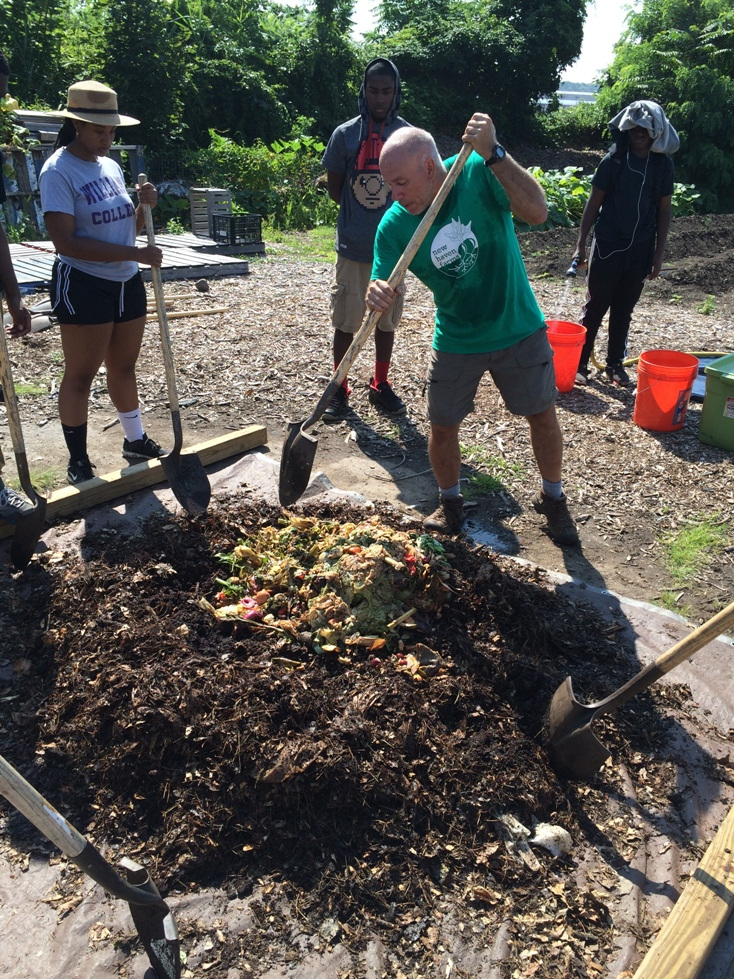Table to Farm in New Haven
New Haven Farms is reducing waste in the city by collecting food scraps and turning them into rich compost for gardens and urban farms.
 |
| Domingo Medina teaches a hands-on lesson to Grow Hartford interns about the New Haven Farms compost system. |
You may already know about New Haven's Peels and Wheels Compost Program. You may have even seen New Haven Farms' staff picking up food scraps from homes and taking them to the Phoenix Press Farm on James Street (under the windmill) to be turned into rich, nutrient-filled compost for gardens across the city.
But, what you may not know is that in its first year of operation, the compost program kept over 13,000 pounds of food out of the incinerator or landfills. That's in addition to the 13,000 pounds of leaves and other plant material used in the compost. That prevented nearly six metric tons of greenhouse gases from being released into the atmosphere, equal to taking 15 cars off the road.
"The pilot year impact of our compost program demonstrates the power of philanthropy and community collaboration for a timely alternative to the headline of 40% of food waste in North America," said James Jenkins, Executive Director of New Haven Farms. "We are grateful for The Community Foundation's support and Domingo Medina's leadership to make a needed dream a reality. Going forward, New Haven Farms wants to support compost scaling opportunities to keep rich nutrients in New Haven, grow green jobs, and reduce our carbon footprint."
The Community Foundation provided a small grant from the Sarah M. Ferguson Fund to help with the startup costs of the program, like purchasing the household compost bins that are provided to subscribers of the program. In its first year, 34 households participated, but the program has the capacity to take food waste from as many as 85 homes. Find more information about that here.
For more information about New Haven Farms, view its giveGreater.org® profile.
Did You Know?
In 2010, more than 34 million tons of food waste was generated in the United States, with only 3% diverted for composting. The Center for Climate and Energy Solutions estimates as much as 42% of greenhouse gas emissions could be avoided if food and yard waste were kept out of landfills and incinerators through recycling and composting.
